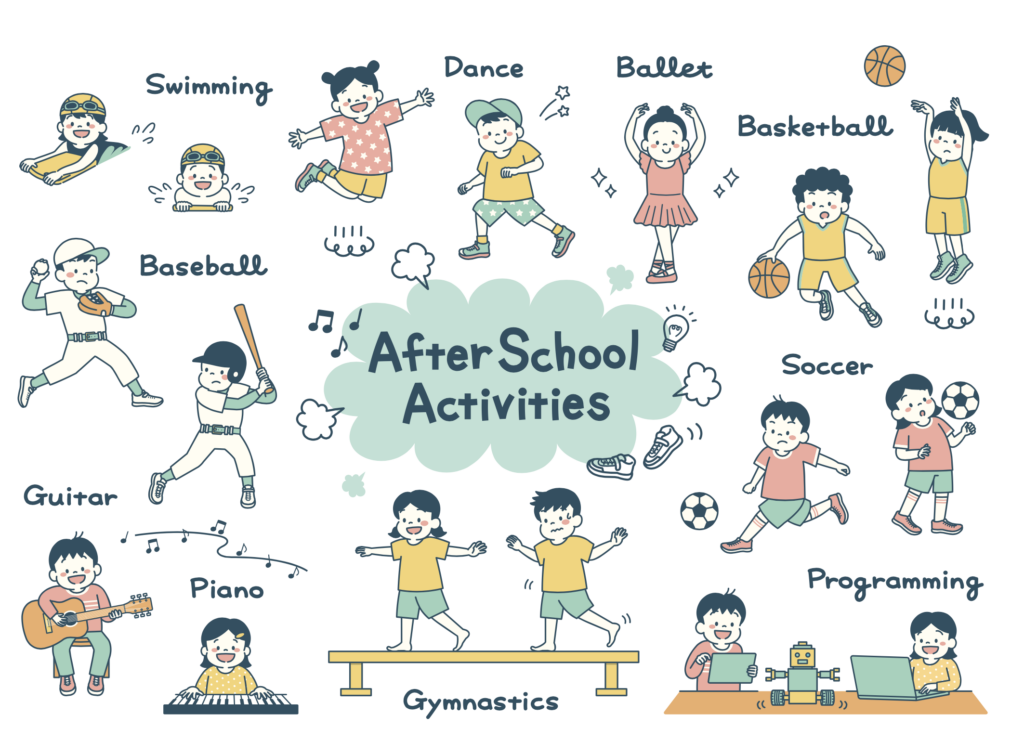Beyond the Trophy: 9 Unexpected Benefits of Extracurriculars for Kids

We already know that sports build strength, music builds discipline, and clubs look good on college applications. But if we zoom out and really watch our kids lose themselves in their favorite extracurriculars, we might start to notice something less measurable, but every bit as valuable.
Extracurriculars do more than pad résumés or burn off energy. They quietly offer unexpected benefits that kids (and their parents) may never see coming.
They Help Kids Take Healthy Risks
In the classroom, the stakes can feel sky-high. A wrong answer might mean a bad grade. A shaky presentation might trigger embarrassment. But extracurriculars give kids something the school day often can’t: the freedom to fumble and the space to try again.
The student who hesitates to speak in class might find her voice in theater. The quiet child who avoids eye contact might take charge during a coding competition or robotics challenge. These activities create low-stakes environments where kids can fail safely, recover quickly, and build confidence along the way. Learning that the world doesn’t end when things go sideways is a lesson they’ll use for life.
They Teach the Value of Time to Themselves
Not all extracurriculars are group-centered, and that’s a gift, especially for kids who crave solitude in a noisy world. A child who chooses the art studio over the soccer field isn’t necessarily antisocial. They may just need stillness. The one drawn to horseback riding might be creating a pocket of reflection in their week.
Not every kid needs to be the team captain or the lead in the school play. Some simply need an outlet where they can lose themselves in something that’s entirely their own. These quieter pursuits nurture self-awareness, inner calm and introspection, all of which can get drowned out today.
They Build Grit Without a Lecture
You can talk to your child about persistence, remind them that success takes time, and that effort matters more than talent. But the lesson lands differently when they actually live it.
When they freeze during a recital, but show up again for the next one, or miss five shots in a row, but stay after practice to try again, they’re learning to show up even when it’s hard.
They Unlock New Versions of Themselves
Sometimes, kids need a break from how they’re seen at school or even at home. At school, maybe they’re the “math kid.” Or at home, they’re the “quiet one.”
But in a different setting, with fresh eyes and new expectations, they get to start over. In a garden club, a child who usually follows might become the one who leads. In the debate club, a soft-spoken kid might discover a booming voice. In an entrepreneurial group, a sixth grader might learn she’s a natural at negotiation.
Extracurriculars allow reinvention. Sometimes, they’re where kids find their real voice.
They Strengthen the Brain in Unexpected Ways
You know that kid who forgets their math homework but somehow manages to coordinate an entire drama production? That’s executive function in action.
Extracurriculars create what researchers call “optimal challenge environments,” spaces where kids must juggle tasks, solve problems, manage time and think on their feet. And best of all, the neural networks being exercised support life skills kids will need well into adulthood.
They Offer Friendships with Built-In Common Ground
Making friends can sometimes be awkward in traditional settings. But when kids collaborate on a project, a connection often grows organically. There’s no need for small talk when they’re working side by side with a shared goal. For neurodivergent kids or late bloomers, these shared-interest environments with built-in connections can be lifelines.
“Extracurricular activities that allow children to establish meaningful relationships with their peers can support their positive mental health,” says Assistant Professor Eva Oberle, whose research on extracurricular benefits appeared in the Journal of Youth and Adolescence.
They Offer Emotional Outlets When Words Fall Short
Not every child knows how to express what they’re feeling. Some don’t even want to try. But emotions still need somewhere to go. A child might not say they’re angry or anxious. But you might see their emotions in the way they slam the drums, in the rawness of their poetry or in the force behind their paintbrush strokes.
Extracurriculars offer nonverbal release. They let kids release emotion through rhythm, movement, melody or color. It’s almost therapy in disguise.
They Make Learning Joyful Again
Sometimes school starts to feel like a grind, even for kids who usually enjoy it. But when they find an activity they choose for themselves, something shifts. They get excited to learn again, and that spark can spill right back into the classroom. Once kids remember what curiosity feels like, even the most routine schoolwork can feel a little more engaging.
Deborah J. Cohan, a professor of sociology, underscores how these experiences can reignite not just academic interest but the joy of learning itself, noting, “Sharpening emotional intelligence and cultivating possibilities for connection and joy are inherent in extracurricular involvement.”
They Let Kids Practice Commitment Without Burnout
Not every activity will stick. And that’s OK. In fact, youth development expert Martin Camiré notes that for kids younger than 12, it’s developmentally appropriate to explore a variety of activities. This “sampling” period helps them learn what fits.
But when a child does commit, they learn the value of sustained effort. They begin to balance passion with responsibility because commitment is one thing, and guilt-fueled overcommitment is another. When chosen wisely, extracurriculars help kids figure out what energizes them, what drains them, and how to manage time with increasing independence.
No Trophy Needed
In a world that sometimes demands specialization before middle school, it’s easy to see extracurriculars as expected enrichment or steppingstones to scholarships. But the real magic may not be as obvious. Extracurriculars give kids space to stretch, to stumble, to connect and to grow. They help kids find their people and themselves.
Sometimes, that’s worth more than any medal.
 Shannon Dean is a freelance writer who specializes in writing about families.
Shannon Dean is a freelance writer who specializes in writing about families.




